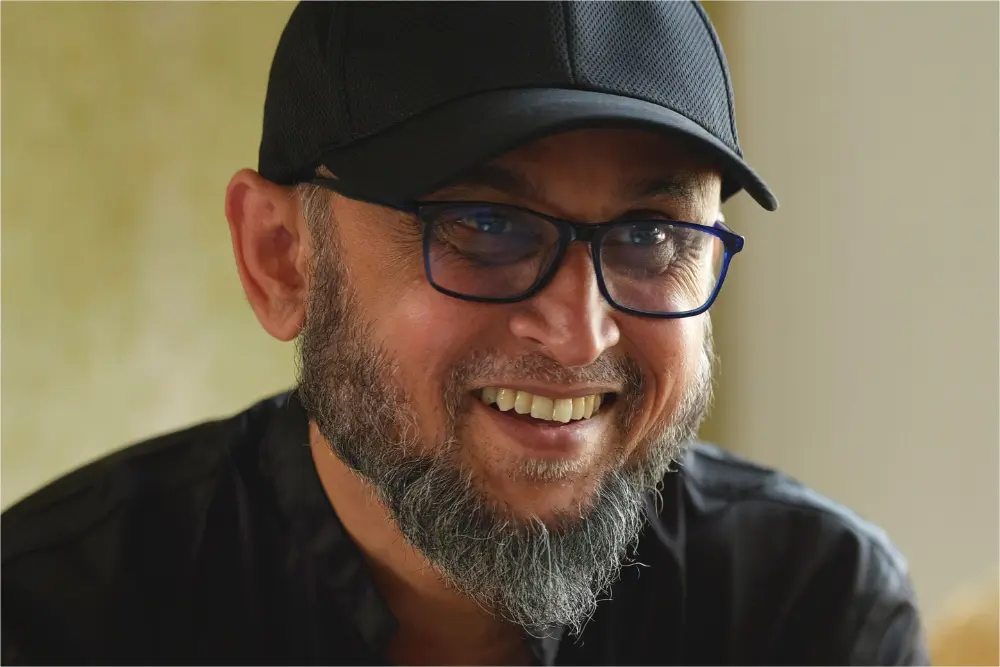A New Chapter for Bangladeshi Culture: Mostofa Sarwar Farooki Steps Up
Bangladeshi cinema visionary takes on cultural leadership
The renowned Bangladeshi filmmaker Mostofa Sarwar Farooki has taken on a new role, stepping in as the Cultural Advisor to Bangladesh’s Ministry of Cultural Affairs. This significant appointment comes amidst political turbulence and symbolizes a potentially transformative moment for the nation’s cultural landscape.
Political backdrop sets the stage
In August, amidst mass protests, the Nobel Peace Prize laureate Muhammad Yunus was appointed to lead Bangladesh’s interim government. This change followed the dramatic departure of Prime Minister Sheikh Hasina, who fled the country. As an interim government, Yunus holds the title of Chief Advisor rather than Prime Minister. Farooki’s position, though functionally akin to the Culture Minister, carries the official designation of Cultural Advisor.
Formation of a new cabinet
Yunus expanded his cabinet on a recent Sunday, where Farooki was one of the notable figures sworn in. Known internationally as Bangladesh’s top filmmaker, Farooki’s films have represented the country at the Oscars three times, gaining him considerable acclaim.
“I was initially hesitant to say yes to this. However, seeing Bangladesh in a rebuilding phase, I felt driven by a desire to contribute to this change,” Farooki expressed, indicating the excitement of collaborating with Yunus.
Inspirations from global cultural leaders
Farooki drew inspiration from South Korean filmmaker Lee Chang-dong, who served as the country’s Minister of Culture and Tourism from 2003-2004.
Farooki shared, “I found courage in the example of Lee Chang-dong. He continued his independent creative thinking even after holding a governmental post. This gave me hope that I, too, could balance my governmental role while preserving my artistic vision.”
Despite the limited power the Culture Minister holds over the film sector, Farooki is optimistic about making a significant impact through the multidisciplinary Shilpokola Academy, which falls under his ministry’s oversight.
A nation in upheaval
The unrest in Bangladesh began in July, centering on demands to dismantle a quota system that allocated up to 30% of government jobs to relatives of 1971 independence war veterans. Protesters argued that this system was discriminatory, calling instead for a merit-based alternative. The then-government, in response, enforced an internet blackout and deployed armed forces who opened fire on protesters, resulting in significant casualties. This turmoil evolved into a broader anti-government movement demanding the end of Hasina’s 15-year rule, eventually leading to her departure.
A second independence movement
Farooki described recent events as another landmark moment for Bangladesh, akin to a “second independence.”
“The most beautiful aspect of this movement is the unity among people from all walks of life, led primarily by Generation Z. Diverse communities, including English medium, Bangla medium, Arabic medium, Hindu, Muslim, Buddhist, and Christian, all participated,” Farooki elaborated.
He added, “It’s an unbelievable feeling. People are hopeful for a future with freedom of expression, fair justice, and no corruption. A place where artistic freedom thrives, and filmmakers can create without censorship barriers.”
An artist’s vision for cultural transformation
Mostofa Sarwar Farooki’s appointment carries the promise of infusing cultural policies with the same vigor and creativity that mark his films. As he steps into this influential role, the nation looks forward to witnessing how his artistic sensibilities will translate into cultural governance.
With his unique vision and dedication, Farooki is poised to use his new platform to shape Bangladesh’s cultural future positively. This transitional phase presents a rare opportunity for significant cultural growth and reform, led by one of the country’s most respected creative minds.
For those eager to follow the unfolding narrative of Bangladesh’s cultural and political renaissance, stay tuned for more updates and insights. Share this story with your network to keep the conversation going.

 Italian
Italian







